Automotive CNC Machining: Precision and Efficiency
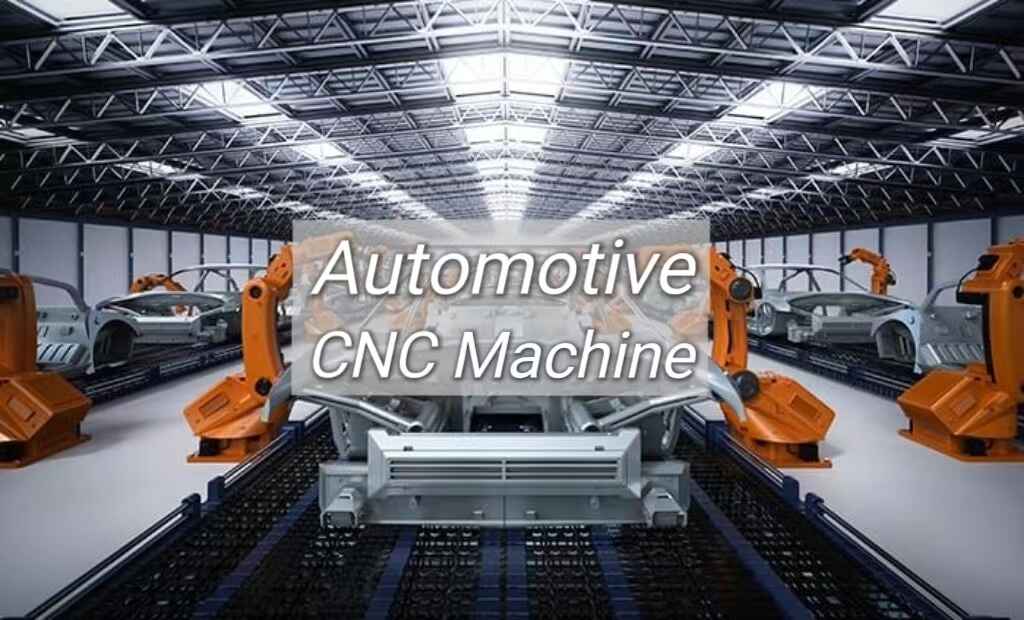
CNC machines are revolutionizing the automotive industry through precise part production, enhancing vehicle performance, safety, and efficiency.
Introduction
The automotive industry has undergone significant transformations over the years, driven by advancements in manufacturing technologies. One such pivotal technology is CNC (Computer Numerical Control) machining, which has revolutionized how precision automotive parts are produced.
This article explores the role of CNC machines in the automotive sector, focusing on their technological capabilities, benefits, and impact on manufacturing efficiency and product quality.
What is CNC Technology
CNC technology involves the use of computerized systems to control machine tools through numerical data. It allows for precise and automated machining processes, where instructions are programmed into computer software that directs the movements of machinery.
This technology has evolved from its early days in the 1940s and 50s to become a cornerstone of modern manufacturing across various industries, including automotive.
CNC Machines in the Automotive Industry
Specific types of CNC machines
Milling Machines
Used for cutting and shaping solid materials, milling machines are essential for producing complex engine components such as cylinder heads, engine blocks, and intake manifolds.
They are also employed in crafting structural components of chassis and body frames.High-speed rotary cutters, multi-axis capabilities (3-axis, 4-axis, or 5-axis), and automated tool changers enhance versatility and precision.
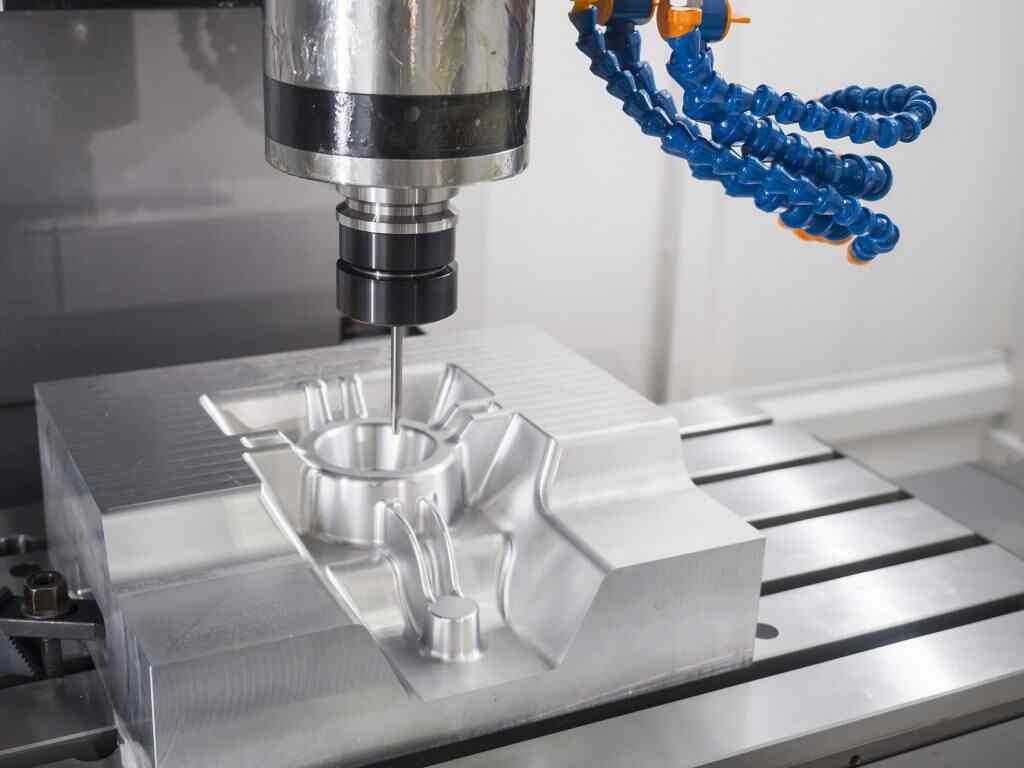
Source: worthyhardware.com
Lathes
Lathes are pivotal in manufacturing cylindrical or round parts like shafts, axles, and bearings for transmissions and drivetrains. They are also used for producing components like pistons and crankshafts.
Capable of turning operations (e.g., facing, turning, threading), programmable spindle speeds, and automated controls ensure accuracy in cylindrical machining.
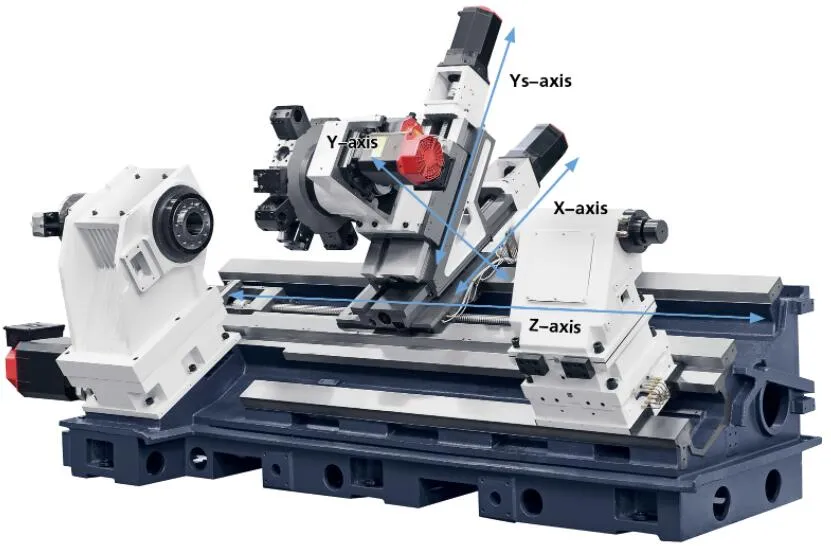
Source: medium.com
Routers
Routers are employed for cutting and shaping materials such as plastics and composites used in interior components like dashboards, panels, and trim pieces.
High-speed rotational tools, vacuum beds for secure material hold-down, and computer-guided precision in intricate designs.
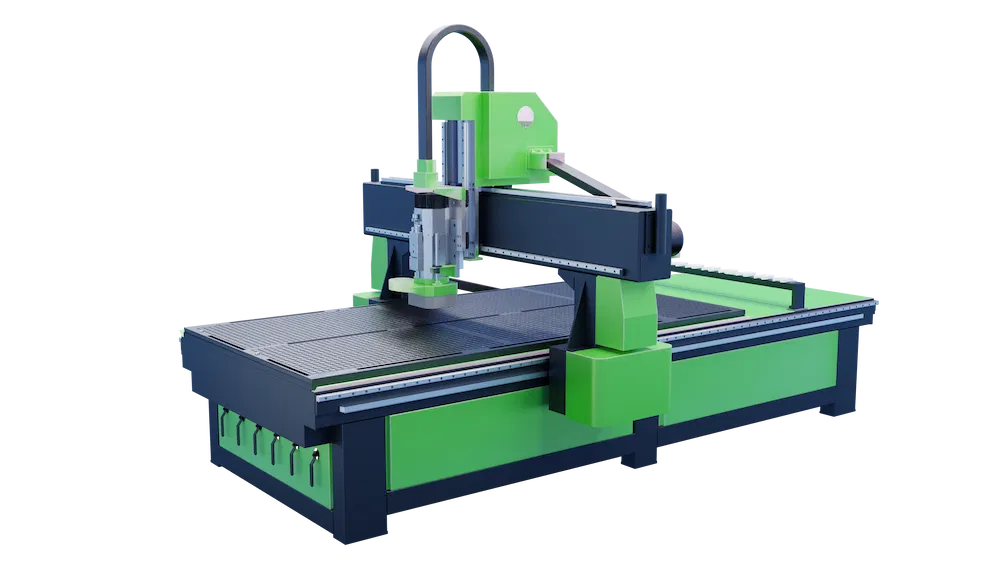
Source: mantechmachinery.co.uk
Key features and capabilities
- Precision and Accuracy: CNC machines offer exceptional precision, achieving tight tolerances crucial for automotive parts. This precision ensures components fit perfectly and operate reliably within vehicle systems.
- Efficiency: Automated processes reduce human error and enhance production efficiency. CNC machines operate continuously with minimal downtime, optimizing throughput and reducing lead times.
- Consistency and Repeatability: CNC machining delivers consistent quality across large production runs, ensuring every part meets exact specifications with minimal variance.
- Flexibility: CNC machines can accommodate a wide range of materials and designs, from simple to highly complex geometries. This flexibility supports the manufacturing of diverse automotive components, including prototypes and custom parts.
Comparison of traditional machining vs. CNC machining
| Aspect | Traditional Machining | CNC Machining |
|---|---|---|
| Accuracy | Dependent on skill; less precise | Highly accurate |
| Efficiency | Slower; manual operations | Faster; automated processes |
| Complexity | Limited by manual capabilities | Handles complex geometries easily |
| Cost-Effectiveness | Lower initial costs; higher scrap rates | Higher setup costs; lower long-term costs |
- Accuracy: CNC machining provides superior accuracy compared to traditional methods, where manual operations may introduce inconsistencies.
- Efficiency: CNC machines operate faster and more efficiently, reducing production times and increasing output volumes.
- Complexity: CNC machines handle complex geometries effortlessly, which can be challenging or impossible with traditional machining methods.
- Cost-Effectiveness: Despite higher initial setup costs, CNC machining offers long-term savings through reduced scrap rates, lower labor costs, and improved process control.
CNC Machines in Automotive Parts Production
Engine Components
CNC machines play a crucial role in the production of engine components by machining precise dimensions and intricate geometries for components like engine blocks, cylinder heads, pistons, and crankshafts. This precision ensures optimal performance, reliability, and longevity of the engine, meeting stringent automotive standards and specifications.
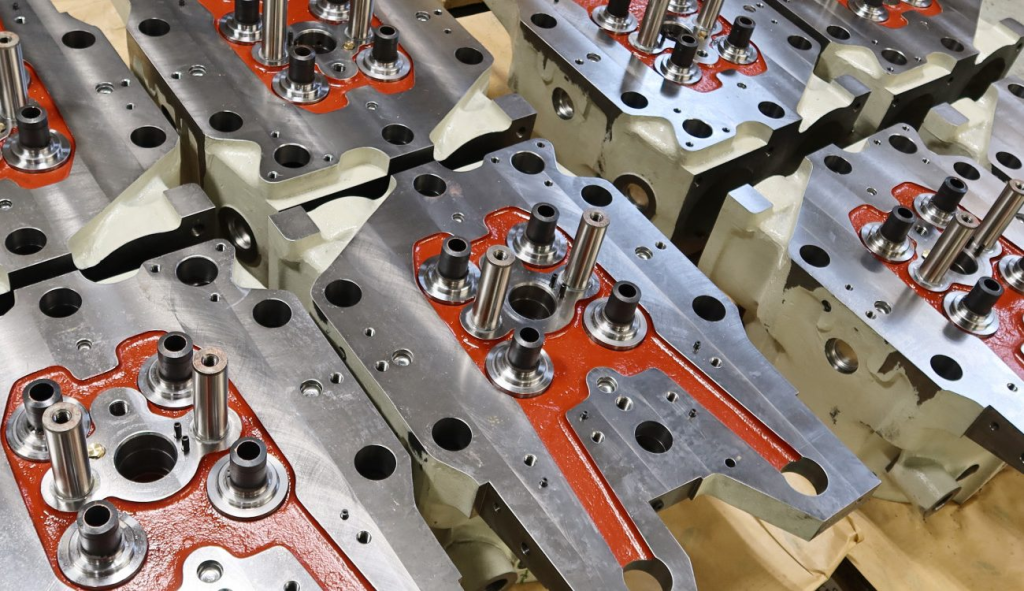
Source: mgsprecision.co.uk
Transmission Parts
CNC machines are utilized to produce critical parts such as gear shafts, transmission housings, and clutch components.
These parts require high accuracy and consistency to ensure smooth operation and durability in automotive transmissions, meeting the demanding requirements of modern vehicles.
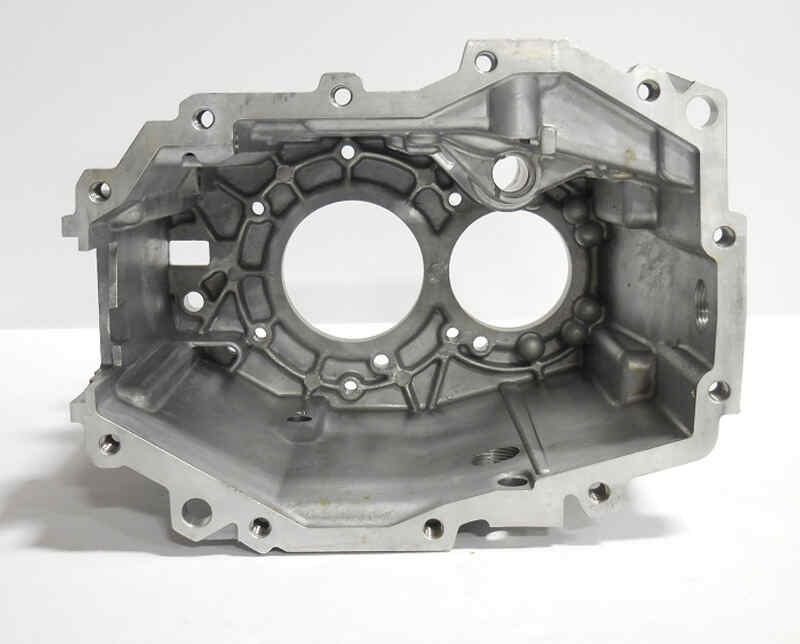
Source: empcasting.com
Body and Chassis
Components For body and chassis manufacturing, CNC machining is employed to fabricate components such as body panels, frame parts, and suspension components.
CNC technology ensures uniformity in parts, maintaining structural integrity and meeting safety standards. This precision contributes to the overall quality and reliability of the vehicle's build, enhancing performance and safety.
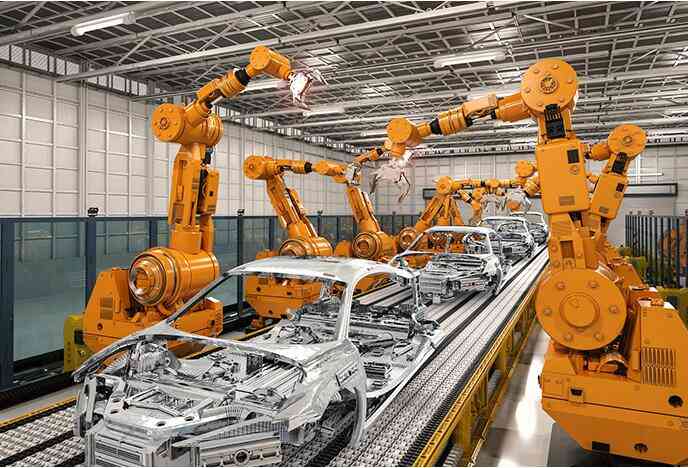
Source: essaii.com
Custom and Aftermarket Automotive Parts
CNC technology enables the production of custom and aftermarket automotive parts with unparalleled precision and flexibility. This includes interior trim pieces, bespoke performance components, and specialized vehicle accessories.
CNC machining allows manufacturers to swiftly adapt to design changes and customer preferences, providing tailored solutions that meet diverse automotive aftermarket demands.
Benefits of CNC Machines in Automotive Manufacturing
- Precision and Accuracy: CNC machines ensure precise and accurate production of automotive parts by following digital instructions with advanced software controls. This precision is critical for vital components, enhancing overall vehicle quality, reliability, and compliance with industry standards.
- Enhanced Efficiency: CNC machining boosts efficiency in automotive manufacturing by minimizing downtime through automated operations and optimized workflows. This improves productivity, reduces lead times, and enables agile responses to market demands and customer requirements.
- Consistency and Repeatability: Utilizing CNC technology ensures consistent quality and repeatability across large-scale production of automotive parts. It maintains uniformity in dimensions, surface finishes, and performance characteristics, crucial for meeting stringent automotive standards and ensuring reliability in vehicles.
- Flexibility in Design: CNC machines enable automotive designers to create intricate part geometries that enhance vehicle design innovation, aerodynamics, and functionality. This capability supports rapid prototyping and facilitates the realization of advanced automotive features, driving competitiveness and customer appeal.
- Cost-effectiveness and Waste Reduction: Despite initial setup costs, CNC machining reduces overall manufacturing costs by minimizing material waste and optimizing resource usage. Automated processes reduce labor costs and operational inefficiencies, contributing to sustainable manufacturing practices and improved profitability in automotive production.
Challenges and Solutions
Common challenges
- High Initial Investment: Introducing and setting up CNC machines requires significant capital investment, which can be a major hurdle, especially for smaller manufacturers. Adopting new technology typically demands a thorough cost-benefit analysis to ensure that the capital expenditure will yield long-term gains in production efficiency and quality.
- Skill Shortage: The scarcity of skilled CNC operators and programmers is a critical constraint in deploying CNC technology. Operating CNC machines necessitates proficient programming skills and machine operation expertise, both of which are in high demand but short supply. Manufacturers must address this gap through internal training initiatives or external recruitment to ensure adequate support for effective CNC technology utilization.
- Complex Programming Requirements: CNC machining involves intricate programming to optimize tool paths and ensure precision in part production. This process includes translating CAD models into machine-readable instructions, which involves complex mathematical calculations and process planning. Manufacturing teams need specialized knowledge in CAD/CAM software and practical experience to efficiently develop and optimize CNC programs.
Solutions and best practices
- Strategic Investment: Manufacturing enterprises should conduct comprehensive cost-benefit analyses to justify CNC technology investments. Emphasizing long-term benefits such as enhanced efficiency and improved product quality helps secure funding and support for technological advancements.
- Skill Development: To address skill shortages, companies should implement robust training programs. These programs can enhance existing employees’ skills in CNC operation and programming or attract external talent with specialized expertise. Continuous learning initiatives ensure that teams remain proficient in utilizing CNC technology effectively.
- Advanced Software Utilization: Adopting advanced CAD/CAM software significantly enhances CNC machining efficiency and accuracy. These software tools streamline design-to-production workflows, optimize tool paths, and facilitate simulations to minimize errors and optimize machining processes. Investing in training to equip teams with proficiency in these software tools is essential for maximizing CNC technology’s capabilities.
Future Trends
Emerging technologies and their potential impact
Future CNC technologies will enhance automotive manufacturing by efficiently handling advanced materials and composites, enabling lightweighting and performance improvements.
Integration with additive manufacturing will allow for complex part geometries and customization, enabling the use of advanced materials and composites for lightweighting and performance improvements.
Additionally, IoT connectivity will optimize machine performance and maintenance through predictive maintenance, real-time data-driven manufacturing, and seamless integration of CNC and AM systems into smart factories.
Integration of AI and machine learning
AI and machine learning will revolutionize CNC machining in automotive production. Predictive maintenance algorithms will minimize downtime, while dynamic tool path optimization and automated quality control systems will enhance efficiency and product consistency.
Combined with robotics, AI will improve flexibility and precision, allowing robots to adapt to real-time changes and autonomously handle complex tasks, reducing human error and boosting productivity.
Sustainability and eco-friendly practices
CNC advancements will support eco-friendly practices in automotive manufacturing through enhanced material efficiency and energy savings. This includes optimizing material use with advanced CAD/CAM software and adopting energy-efficient machining processes. Embracing circular economy principles will further promote recycling and sustainable production practices in the industry.
Conclusion
CNC machines have revolutionized automotive manufacturing, enabling precise production of complex parts essential for vehicle performance and safety.
Integration of additive manufacturing, IoT connectivity, and AI-driven automation promises to further streamline operations and enhance sustainability by optimizing resource utilization and reducing environmental impact. These advancements position automotive manufacturers at the forefront of innovation, driving efficiency and meeting evolving industry standards.
Get Precise CNC Parts for Your Project
Get custom CNC machined parts with advanced techniques at Unionfab. We cover your entire project, from prototyping to finishing, offering a one-stop shop for all your manufacturing needs.
For more information, please visit our Contact Us page.


